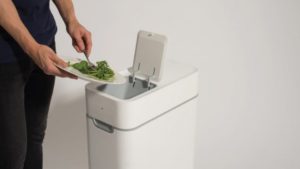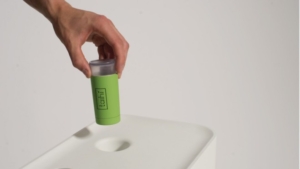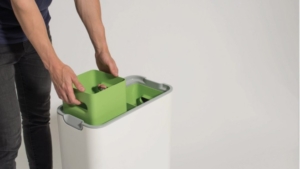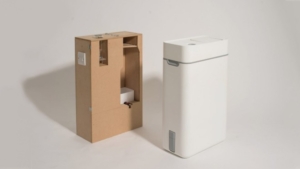
Developed by product and industrial designer Benjamin Cullis Watson, Taihi is a sleek and minimalist kitchen compost bin that uses a Japanese form of fermentation called bokashi to break down food wastes.
By adding food wastes into the Taihi Bin, a microbe accelerant mixture housed in a replaceable vial is sprayed onto the waste to start the fermentation process. Over the two weeks fermenting cycle, food wastes are broken down then converted into both compost and liquid fertilizer.

Inside, there are two 20 L internal containers that store the food waste during the fermentation cycle and the containers are covered in a non-stick coating to make emptying and cleaning a breeze. The liquid fertilizer is housed in a separate watering can that can also be removed when it comes time to water some plants.

Sealed by a double-lid system with a set of rubber seals to contain any unwanted smells and leaks, the Taihi Bin can be used indoors without the fear of catching a whiff of fermenting food wastes.
Due to his upbringing in Ethiopia where nothing was ever wasted, Benjamin was shocked by the UK’s irresponsible waste disposal he witnessed and so he set his mind towards a remedy to this problem the best way he knew how by designing Taihi Bin.

“The minimalist style of the product grew out of a desire to reflect the clean and mess-free experience it provides, combined with simple and modest styling cues to indicate the Japanese methodology behind the product,” said Benjamin Cullis.
Benjamin Cullis Watson was given the 2017 New Designers Joseph Joseph Brilliantly Useful Award for Taihi Bin and is currently working on an improved iteration of the design.





